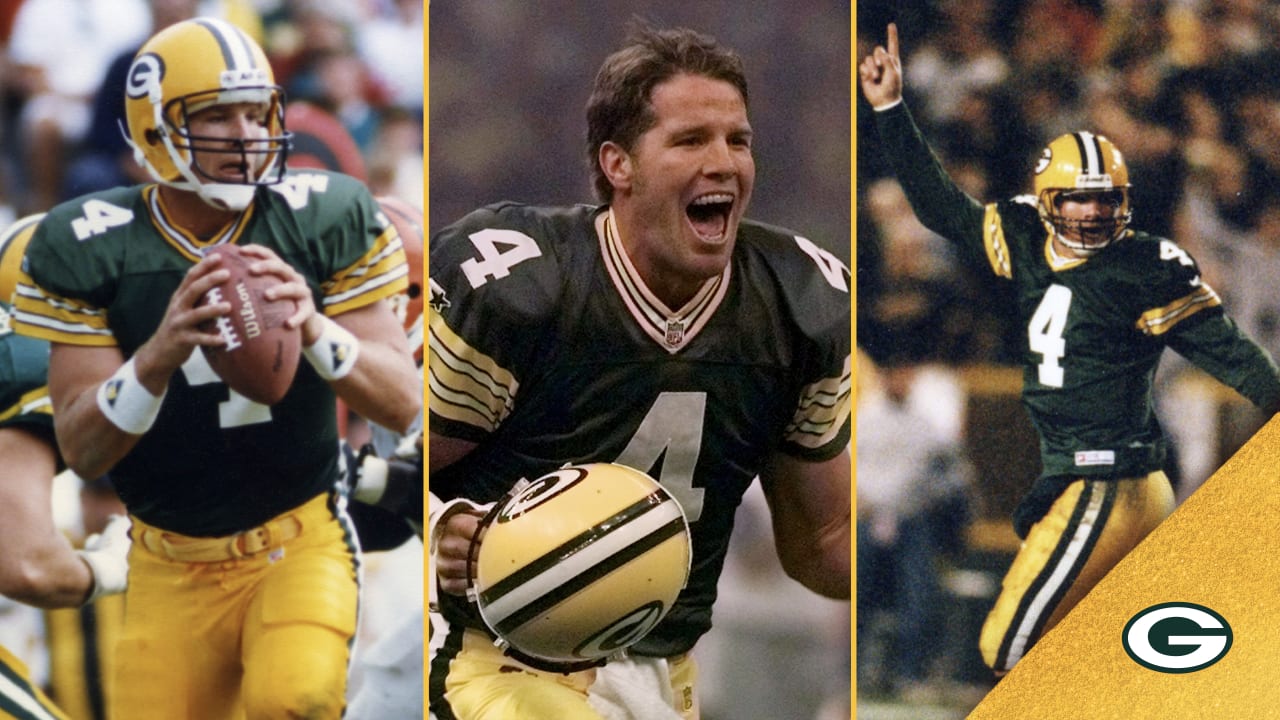Cheesehead
Well-known member
- Mar 19, 2019
- 2,854
- 0

GREEN BAY – With Aaron Rodgers winning the 2020 NFL MVP, the Packers as a franchise have now won nine MVPs since the advent of the Associated Press award in 1957.
But which of the nine was the best season? Who's the MVP of the MVPs?
Packers.com is letting the fans choose via a weekly series that began last week with the three Lombardi-era MVPs and now continues with a vote on Brett Favre's three.
Next week will be a choice among Rodgers' three, and then the three weekly winners will be pitted against one another for a final vote.
So let's continue. Here's a rundown of Favre's three consecutive MVP seasons. All statistics are regular-season only. Vote for your favorite in the poll at the bottom.
Favre's first of three straight MVPs was his best statistically in a number of categories – completions (359), yards (4,413), completion percentage (63.0) and passer rating (99.5).
Starting every game (of course), he led the team to an 11-5 record, including a 6-1 stretch run during which the only loss was in overtime at Tampa Bay.
The 4,413 passing yards led the league, as did his 38 touchdown passes. His passing yardage was also a career high and remained so for the rest of his career. It also ranked second for a single season in Packers history at the time, just behind Lynn Dickey's 4,458 yards in 1983.
The biggest early-season highlight was a record 99-yard TD pass to receiver Robert Brooks on Monday Night Football at Chicago in Week 2.
During the 6-1 stretch run, Favre posted a passer rating of 122 or better five times and threw for at least 300 yards four times.
The dynamite finish to the season began with a five-TD performance against the Bears on Nov. 12 at Lambeau Field on a badly swollen ankle, and he went on to throw 21 TD passes against just two interceptions over those last seven contests (after posting a TD-INT ratio of 17-11 in the season's first nine games).
Favre once again led the NFL in TD passes with 39, which became his career best. He was 325-of-543 (59.9%) for 3,899 yards with 13 interceptions, matching his INT total from the previous year. His passer rating was 95.8.
He led the Packers to a 13-3 record, including two separate five-game winning streaks sandwiched around back-to-back losses at Kansas City and Dallas in mid-November.
Favre started the year with a superb outing at Tampa Bay, completing 20-of-27 for 247 yards with four TDs for a 141.5 passer rating, a season best, making him a candidate to defend his MVP honor right from the get-go. The Packers scored 34, 39 and 42 points in their first three games.
The opener was the first of five games that year with four TD passes, and he finished the regular season by posting a 132.6 passer rating (15-of-23, 202 yards, three TDs) in a rout of Minnesota to clinch the NFC's No. 1 playoff seed. Green Bay went on to win Super Bowl XXXI.
For the third straight year, Favre led the league in TD passes, this time with 35, while his interceptions ticked up to 16. He finished 304-of-513 (59.3%) for 3,867 yards and a 92.6 passer rating.
Favre recorded his second career five-TD game in late September against the Vikings. He also threw four TD passes in a cathartic, blowout home victory over the Cowboys just before Thanksgiving that ended his and the Packers' seven-game losing streak to Dallas, which included three playoff defeats to end the 1993-95 seasons.
For the second straight campaign, he led the Packers to a 13-3 record that included two separate five-game winning streaks. After a 3-2 start, Green Bay went 10-1 the rest of the way – with a stunning 41-38 loss at Indianapolis to an 0-10 Colts team (during which Favre threw for 363 yards on just 18 completions) the only blemish over the final three months. The Packers went on to defend their NFC title and return to Super Bowl XXXII.
